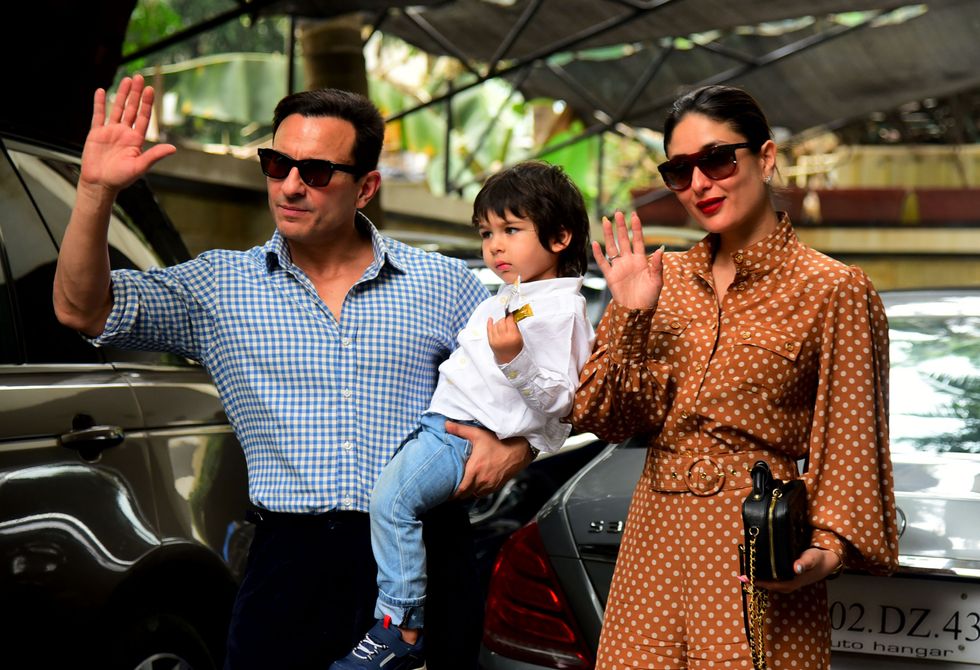THE Financial Times business book of the year for 2023 has gone to Right Kind of Wrong: Why Learning to Fail Can Teach Us to Thrive by Amy Edmondson, a Harvard professor who has been called “the world’s most influential organisational psychologist”.
The prize, worth £30,000, was announced last Tuesday (4) at a dinner at Claridges, in London.
The authors of the five other books on the shortlist received cheques for £10,000.
The five are: Cobalt Red: How the Blood of the Congo Powers Our Lives by Siddharth Kara (this was featured in Eastern Eye on September 29, 2023); Material World by Ed Conway; How Big Things Get Done: The Surprising Factors Behind Every Successful Project, from Home Renovations to Space Exploration by Bent Flyvbjerg and Dan Gardner; Elon Musk by Walter Isaacson; and The Coming Wave: AI, Power and the Twenty-First Century’s Greatest Dilemma by Mustafa Suleyman with Michael Bhaskar.
Businesses have been urged to read all six books to get a better understanding of the whole range of geo-political challenges they face.
Roula Khalaf, editor of the FT and chair of the panel of judges, said: “We selected a shortlist that covers some of the biggest issues of our time, from the advance of artificial intelligence and the relentless pressure on natural resources, from the rise of Elon Musk to how big failures happen and what to learn from them. An excellent and topical shortlist, with fine writing, in-depth research and riveting narrative.”

She said about the winning book: “Amy Edmondson lays out a powerful framework for how to learn from failure and deal with risk. Right Kind of Wrong... is a highly readable and relevant book with important lessons for leaders and managers everywhere.”
The idea that people can learn from failure was discussed in this year’s Asian Rich List (published by Eastern Eye). In fact, Apurv Bagri, chairman of the London Business School, said that he wished to unlearn everything he knew in order to prepare himself for the future.
Peter Harrison, chief executive of Schroders – the global investment management firm that has signed a three-year deal with the FT to co-sponsor the books award – commented: “Failure often lies behind progress, but is ‘failing fast’ really a good thing or simply a cliché? Amy Edmondson’s Right Kind of Wrong... provides clarity and practical prescription to address the issues businesses face every day. It is invaluable reading.”
Harrison, who is on the judging panel, said Schroders was keen to support this award “because we’re grappling with some of the most difficult issues that we will ever grapple with, and we’re trying to do it in the middle of a firestorm. And I don’t think there’s ever been a time when long-form, evidencebased discussion is more important. I don’t think there’s been a time, actually, in our lifetime when books will be more important. I do think that there were six fantastic books on the shortlist, and I enjoyed every single one.”
Another judge, Daisuke Arakawa, managing director for global business at Nikkei Inc, the Japanese company that owns the FT, said: “We are living in an unstable and unpredictable world. When I think about the people in the Middle East, I can’t help but feel powerless.
“The shortlisted books are full of deep insights, excellent ideas, and pressing issues. They won’t solve all the world’s problems by themselves. But if we can learn from the wisdom distilled in these books and turn it into action, perhaps it will drive change.”
It would be fair to say that most of the business leaders who appear in the Asian Rich List take decisions on the basis of their instincts, which are almost a part of their DNA. Very few of them rely on academic learning.

Yet, the FT event appeared to suggest that the business world is changing rapidly and beyond recognition.
The evening’s keynote address was delivered by the former cabinet secretary, Mark Sedwill, who began by saying he had been asked to talk about geopolitics and its impact on business.
Now a crossbench peer, Sedwill served as cabinet secretary and head of the home civil service to prime ministers Theresa May and Boris Johnson from 2018 to 2020. He also served as the UK national security adviser from 2017 to 2020. He was previously the British ambassador in Afghanistan from 2009 to 2010 and the NATO senior civilian representative in Afghanistan in 2010. He was the permanent undersecretary of state at the Home Office from 2013 to 2017. He was also deputy high commissioner in Pakistan from 2003 to 2005.
He spoke from a global perspective. This will make his message relevant to everyone from the Hindujas to Lakshmi Mittal, Sri Prakash Lohia, Nirmal Sethia and Kartar Lalvani. Lord Rami Ranger, for example, sells his products to over 100 countries.
Sedwill opened with a reference to demographic changes: “By the middle of the century, the only part of the world which will not have an ageing population is sub-Saharan Africa. Half the children born in the world will be born in subSaharan Africa. In 2050, countries like India will have an ageing population.”
Currently, India’s young population is considered one of its strengths. More than 50 per cent of its population is below the age of 25 and more than 65 per cent below 35.
In the UK, in marked contrast, the number of people aged 65 years and above increased from 9.2 million in 2011 to more than 11 million in 2021. By 2039, the number of people aged 75 and above is expected to double from five million to nearly 10 million. This explains why the UK (and much of Europe) will continue to depend on immigration – whatever the politicians might say – to shore up its tax base and ensure the payment of a state pension.

Sedwill offered a few tips to his audience: “The first point I make is that businesses need to think about resilience. You need to think about resilience in your operations. And you really need to understand the supply chains. The financial businesses in this room know all too well the rubric of ‘know your customer’.”
He posed a number of questions. What would it mean for tariffs or the Paris agreement on climate change if there was a [Donald] Trump 2 administration [in the US]? What would it mean for continued US support for Ukraine, or America’s relationship with China?
“The second thing I would suggest you do is prepare is do some contingency planning,” said Sedwill.
In 2024, there would be elections that might bring change. “Over two billion people will be voting – obviously, here in the UK, but also in Taiwan, India, Pakistan, Indonesia, Russia and Ukraine. And, of course, in the United States.”
Sedwill talked of India: “The other big feature in modern geopolitics is the resurgence of non-alignment.
“There is a new non-alignment in the 21st century led by India. In particular, they were determined to see at the recent G20 that the African Union was brought into the G20 as an institutional partner, alongside the European Union as the other institutional partner.
“Countries in the Gulf and countries across the global south are determined to remain non-aligned. They are determined not to find themselves being made to choose or align with one of these two blocks that are coalescing around the United States and China.
“And of course, if they remain in that position, then the United States and China will need to continue to compete in order to attract the support of that nonaligned group.
















 Saif highlights the importance of being present for children and parentsInstagram/
Saif highlights the importance of being present for children and parentsInstagram/ Saif Ali Khan slams Bollywood’s long hours says coming home before kids sleep is real successGetty Images
Saif Ali Khan slams Bollywood’s long hours says coming home before kids sleep is real successGetty Images  Saif Ali Khan attend the debut of the book 'The Perils of Being Moderately Famous' written by his sister along with his familyGetty Images
Saif Ali Khan attend the debut of the book 'The Perils of Being Moderately Famous' written by his sister along with his familyGetty Images 
